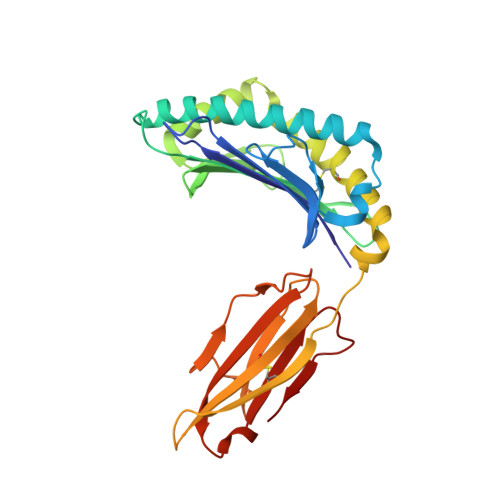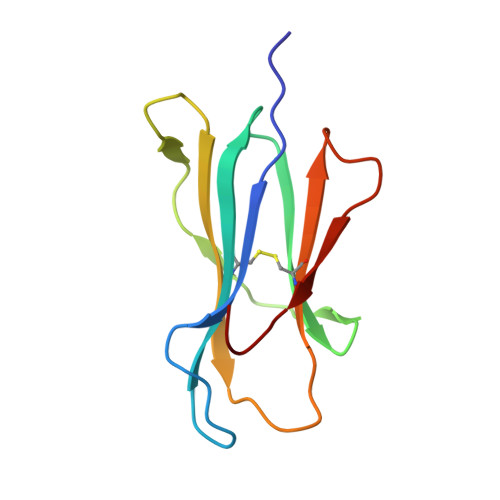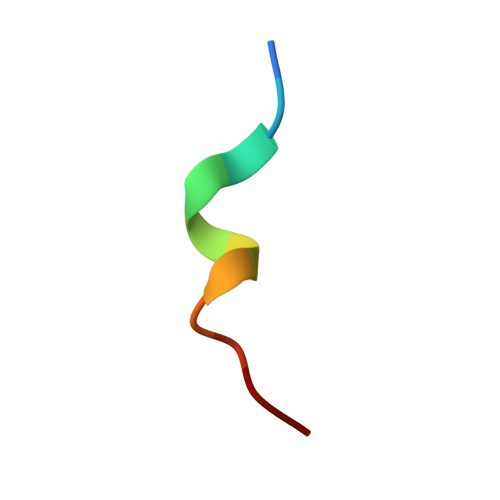Cross-immunity Against Avian Influenza A(H7N9) Virus in the Healthy Population Is Affected by Antigenicity-Dependent Substitutions.
Liu, W.J., Tan, S., Zhao, M., Quan, C., Bi, Y., Wu, Y., Zhang, S., Zhang, H., Xiao, H., Qi, J., Yan, J., Liu, W., Yu, H., Shu, Y., Wu, G., Gao, G.F.(2016) J Infect Dis 214: 1937-1946
- PubMed: 27738054
- DOI: https://doi.org/10.1093/infdis/jiw471
- Primary Citation of Related Structures:
4MJ5, 4MJ6 - PubMed Abstract:
The emergence of infections by the novel avian influenza A(H7N9) virus has posed a threat to human health. Cross-immunity between A(H7N9) and other heterosubtypic influenza viruses affected by antigenicity-dependent substitutions needs to be investigated. We investigated the cellular and humoral immune responses against A(H7N9) and 2009 pandemic influenza A(H1N1) virus (A[H1N1]pdm09), by serological and T-cell-specific assays, in a healthy population. The molecular bases of the cellular and humoral antigenic variability of A(H7N9) were illuminated by structural determination. We not only found that antibodies against A(H7N9) were lacking in the studied population, but also revealed that both CD4 + and CD8 + T cells that cross-reacted with A(H7N9) were at significantly lower levels than those against the A(H1N1)pdm09 peptides with substitutions. Moreover, individual peptides for A(H7N9) with low cross-reactivity were identified. Structural determination indicated that substitutions within these peptides influence the antigenic variability of A(H7N9) through both major histocompatibility complex (MHC) binding and T-cell receptor docking. The impact of antigenicity-dependent substitutions on cross-reactivity of T-cell immunity against the novel influenza virus A(H7N9) in the healthy population benefits the understanding of immune evasion of influenza viruses and provides a useful reference for universal vaccine development.
- Key Laboratory of Medical Virology, Ministry of Health, National Institute for Viral Disease Control and Prevention.
Organizational Affiliation:


















